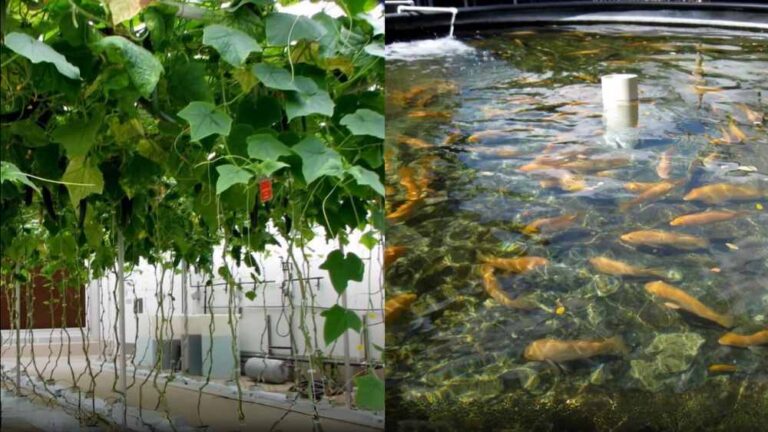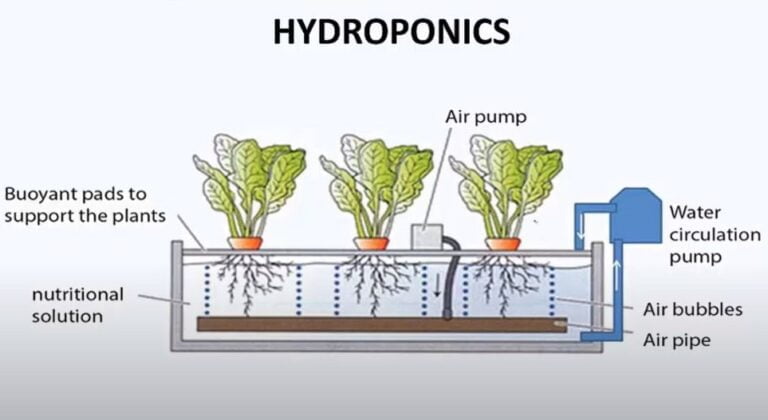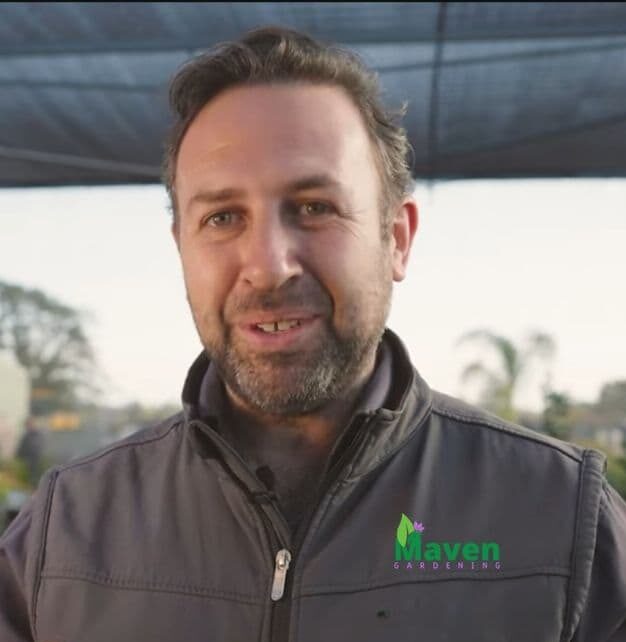
Welcome to our guide to the key differences between hydroponics and aquaponics. As sustainable farming gains momentum, understanding these two soilless growing methods is crucial for hobbyists and commercial growers alike. Whether your goal is eco-friendly food production or maximizing crop yields, exploring aquaponics vs. hydroponics will help you make the right choice. Both techniques rely on water as the primary growing medium, but distinct features set them apart. Let’s dive into what makes them unique.
How do Hydroponics and Aquaponics Work?
Two cutting-edge ways to grow plants, hydroponics, and aquaponics, both aim to grow plants without dirt. There has been a long history of using these techniques. For example, hydroponics was employed in the Hanging Gardens of Babylon, and the Aztecs utilized aquaponics in their chinampas. But the ways they do things are as different as the plants they care for.
Hydroponics: In hydroponic setups, perlite or coconut coir supports plants. A solution full of nutrients is carefully sent to the plant’s roots, giving it everything it needs to grow at its peak. Plants grow faster and produce more in this controlled environment than in standard soil-based farming.
Aquaponics: In aquaponics, fish and plants work together to make food. Tanks are used to raise fish, and healthy bugs turn waste into plant food. The plants take up these nutrients, which naturally clean the water before sending it back to the fish tanks. This creates a sustainable closed-loop structure.
Why is it so popular?
Hydroponics and aquaponics are popular for their many benefits:
Environmentally friendly: less water use and no chemical nutrients.
Space-saving: works in small spaces.
Year-round production: very effective in controlled settings.
Aquaponics vs. Hydroponics: How to Choose the Right System
Your individuality and specific gardening goals are considered in this guide. It will go into more detail about the differences between aquaponics and hydroponics and list the pros and cons of each. In the end, the right choice depends on your own goals and resources. This way, you can be sure that your choice is well-informed and fits your needs.


Key Differences Between Hydroponics and Aquaponics
Aquaponics and hydroponics both grow plants without soil, but they have key differences. In hydroponics, plants get nutrients from chemical fertilizers added to the water.
Aquaponics is a bit more complex because it’s like a mini-ecosystem; fish waste provides plant nutrients, and the plants help clean the water for the fish. This closed-loop approach makes aquaponics generally more sustainable than hydroponics. Additionally, plant selection differs between the two systems, as discussed below briefly:
Aquaponics vs. Hydroponics: Nutrient Delivery
Aquaponics and hydroponics differ primarily in how nutrients are provided. Hydroponics uses chemical fertilizers in the water to deliver precise nutrients for plant growth. Aquaponics is a natural system where fish waste becomes plant food via bacteria. The plants purify the water for the fish, creating a sustainable, symbiotic environment.
System Complexity: Hydroponics vs. Aquaponics
Hydroponic systems are more accessible to start but need regular care, such as checking pH levels and nutrient balances. On the other hand, aquaponic systems, where you also keep fish, are more complex to set up but more straightforward to look after once they’re running. These two options need different levels of effort, so think about that before picking one.
How Hydroponics and Aquaponics Impact the Environment?
If you care about the environment, it’s imperative to know how to handle hydroponic water and nutrients the right way. Aquaponics is better for the Earth because it recycles water and uses fish waste as a natural nutrient for plants. It means you don’t need to make or use as many artificial things.
Aquaponics vs. Hydroponics: Which Plants Do Best?
You can grow various plants in hydroponics with a precisely controlled nutrient supply. Herbs and green vegetables grow well in this environment.
On the other hand, in an aquaponic system, you can only plant certain plants that do well with fish waste nutrients. It is usually rich in nitrogen.
Aquaponics vs. Hydroponics: Pros and Cons
Each system has a specific set of capabilities and limitations. Let’s discuss some wonderful and terrible things:
Pros of Hydroponics
How fast does a plant grow?
Hydroponic farming is the ideal method because plants grow quickly. Controlling the exact amounts of nutrients provides the most optimal growth conditions.
Conditions Under Control
Hydroponic systems allow plants to grow in controlled settings. Everything can be tweaked to get the most effective results, from nutrients to light and warmth.
Low water use
Hydroponics recycles water and uses less than standard soil-growing methods. As water gets scarcer, it becomes a necessity.
Aquaponics Advantages.
Fish farming that is sustainable and integrated
This is a healthy choice, as it creates an environment where plants and fish grow together. When people talk about the difference between aquaponics and hydroponics, this is often considered a significant benefit of both.
There’s no need for artificial nutrients.
Plants do not need artificial fertilizers since fish waste contains all the nutrients they need.
Balance, like in an ecosystem
When an aquatic system is balanced, it needs less help. In a healthy micro-ecosystem, plants and fish thrive together. This makes it easier to maintain in the long run.
Knowing these fundamental differences, you can decide which is most suitable for your needs and goals.
Hydroponics: Bad Things
High costs at first: Grow lights, pumps, and nutrient solutions can be expensive to set up.
Energy use: Most systems need artificial lighting and pumps that use energy, which raises utility bills.
Complexity and Level of Skills: Getting the right balance of nutrients and pH levels is challenging, especially for newbies.
Aquaponics Drawback
Balancing is tricky: It requires fish ecosystems and plant growth, making it challenging to balance everything.
Risk of sickness: If one section of the system gets sick, like the fish, the whole system could be in danger.
Cost and setup: It requires a substantial initial investment, like hydroponics, because tanks and pumps can be expensive.
When we compare these two, aquaponics is more complicated because you have to care for an extra living ecosystem—the fish.

Practical Considerations for Aquaponics and Hydroponics
Cost: Hydroponics usually costs less in the long run because you only have to care for the plants. But the cost of setting up can still be high. Aquaponics usually has higher ongoing costs because you must feed the fish and do other things to keep it running.
Space: Fish tanks take up more space in aquaponic setups. Hydroponics might be a better choice if you have a small room.
Commitment to time: Both systems must be checked regularly, but aquaponics requires more time to care for plants and fish.
Level of Skill: Hydroponics is an excellent starting point for beginners because it doesn’t involve fish. On the other hand, aquaponics is more complex as it combines fish care with plant growth, so you’ll need to know about both.
A real-life case study
Example 1: A small hydroponic farm in Arizona showed that growing high-quality greens using less water was possible all year.
Example 2: A farm in Florida used aquaponics to grow tilapia and plants together. That created a more sustainable and circular system, but it took a lot of work to figure out initially.
Final Thoughts
To make the right choice, you must know the main differences between aquaponics vs. hydroponics. Hydroponics is easier to use, takes up less room, and uses more energy. Aquaponics is an environmentally friendly gardening method, but it requires more knowledge and skill to set up.
In short, if you’re looking for a more straightforward and space-efficient option, hydroponics might be your choice. On the other hand, if you’re interested in preserving and caring for ecosystems, aquaponics could be a better fit.
Knowing hydroponics vs. aquaponics and what each system involves lets you decide which is best for you. The questions “How are these techniques different?” are answered here.
FAQs
What is the general cost of hydroponics and aquaponics?
Based on the scale, basic costs can vary greatly. Hydroponics usually requires less money upfront, but nutrients may cost more over time. Aquaponics costs more upfront because of the fish tanks and pumps.
Aquaponics vs. hydroponics: what’s the difference?
Hydroponics requires regular pH checks, nutrient solutions, and system cleaning. Aquaponics also requires monitoring fish health and water quality, making it more complicated.
How do I decide between these methods of growing plants indoors?
Your choice may depend on how much space you have, what plants you want, and environmental concerns. Hydroponics is better for plants that need nutrients, while aquaponics is better for an eco-friendly system that cares for itself.
Are there any plants these systems can’t grow?
Some roots and plants may not be ideal for these systems. However, most herbs, greens, and even some fruits can be grown successfully.
How long does it take to care for aquaponics and hydroponics systems?
Both systems require regular maintenance. It means checking the pH, changing the nutrients, and cleaning the system. Aquaponics means checking fish health and water quality. A weekly or daily check-in may be needed, depending on the system’s complexity and size.
Can these systems handle large-scale farming? How should you make more?
Commercial farms can use both techniques. When you want to grow your business, you must consider the initial investment, the space you have, the crops you choose, and how well you use water and energy. Monitoring and automation are necessary for businesses to succeed.
Are there any problems with hydroponics or aquaponics?
Controlling light, humidity, and temperature is challenging in indoor hydroponics and aquaponics. Also, losing power or having tools break can be a big problem. You must have backup plans and ways to keep plants and fish healthy and growing.

Meet Milan Cole, your urban gardening pro!
Milan Cole, chief content writer at Maven Gardening and an urban gardening expert, is passionate about helping city dwellers cultivate their green thumbs. Armed with extensive horticultural knowledge, Milan provides practical advice for overcoming urban gardens’ challenges, like limited space, water scarcity, and reduced sunlight.
His expertise extends beyond traditional methods, encompassing innovative approaches like hydroponic and aquaponic systems and sustainable gardening practices. Milan skillfully adapts these techniques to urban environments, considering factors like pollution and climate change.
In his clear and concise writing, Milan offers actionable solutions for anyone wanting to bring life to an urban space. He shares valuable insights into growing herbs in tight spaces, maximizing the potential of window boxes, and transforming even the most miniature balconies into thriving green oases.
Milan’s guidance is straightforward and practical, making it ideal for anyone looking to cultivate their own urban garden, regardless of prior experience.
Join Milan Cole on your journey to metropolitan Eden!
